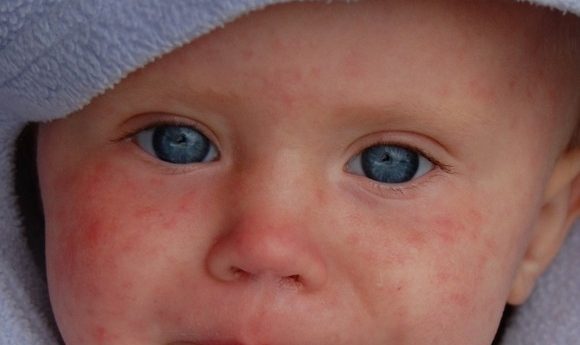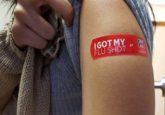Decline in measles vaccination rates leading to preventable outbreaks

Measles was declared to be eliminated in the USA in 2000. Now, however, declining vaccination rates are leading to increasingly frequent outbreaks. How can this be stopped?
Measles was declared to be eliminated in the USA in 2000 after no sustained transmission of the virus was seen for more than 12 months. However, declines in levels of vaccination are now leading to outbreaks in the USA and other countries. There is now a call for more focus on measles vaccination efforts so that the disease doesn’t completely rebound.
Measles is very easily transmitted through respiratory droplets in the air. It usually affects young children, with recovery taking 1 week. However, vulnerable populations, including those with immune deficiencies and infants, are at risk of complications. Pneumonia, blindness, secondary infections, and death can all occur as a result of measles.
Measles still causes more than 100,000 deaths annually across the globe. This may be a far cry from the 2 – 3 million deaths that occurred annually prior to the invention of the measles vaccine; however, the vaccine is a very simple and effective way to prevent measles that is increasingly being ignored.
Each death is a “preventable tragedy that could have been avoided through vaccination.”
While some people do have valid medical reasons for not being vaccinated, for example immunodeficiencies, there are some that have avoided vaccination based on widespread misinformation. The authors of a recent commentary, published in the New England Journal of Medicine, believe that each death is a “preventable tragedy that could have been avoided through vaccination.”
-
How the media influences vaccine behavior
-
“Coughs and sneezes spread diseases”: the science behind the saying
-
Lynch syndrome vaccine could be on the horizon
They comment that the measles vaccine is very safe and effective, and any claim that it is related to a child’s risk of autism, for example, is completely false. Falling vaccination levels weaken the effects of herd immunity, in which young children and immunocompromised people are protected from the disease by high levels of immunity in their surrounding community.
An example they provide of an outbreak related to this effect is a case in which a child with measles infected 23 other children in a pediatric oncology clinic, with a resulting fatality rate of 21% (approximately five children).
A continuing decline in vaccination rates will lead to more frequent and disastrous measles outbreaks, which is perplexing as measles is, as the authors note, one of the most easily prevented contagious illnesses. It is possible to eliminate and potentially eradicate the disease if parents and healthcare practitioners work together.


